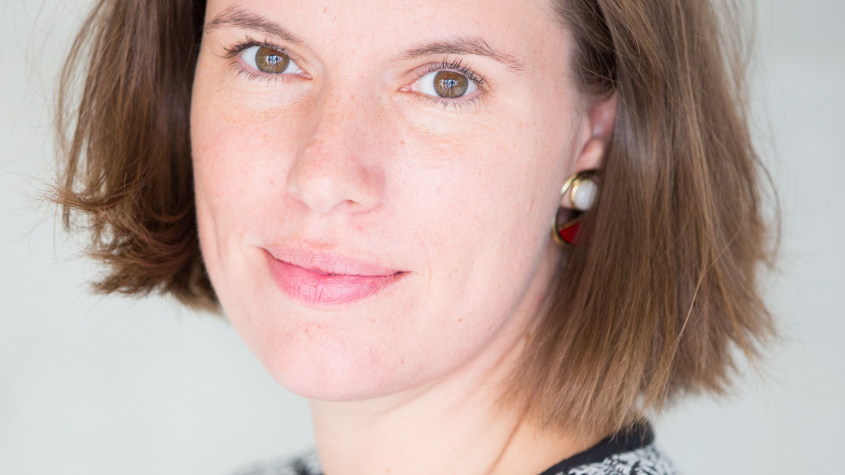PREMIUM | Why Europe should help Africa develop its renewable energy potentials – Anja Berretta
Anja Casper-Berretta, Head of Regional Program for Energy Security and Climate Change in Sub-Saharan Africa at Konrad-Adenauer Stiftung (KAS), urges European nations to assist African countries harness their renewable energy potentials.

Newspage: The Climate Policy and Energy Security Programme for Sub-Saharan Africa’s mission is to raise awareness of energy security and climate change among political actors within the African Union, RECs and national governments. How has it been trying to deliver on this mandate?
Ms Casper-Berretta: Climate change is obviously perceived as an important subject by those regional institutions. However, the biggest challenge is, while regional institutions can provide policy guidelines, only national governments have the mandate to implement such policies.
Yet, this is not a challenge for Africa only. At the level of the European Union, it is also sometimes difficult to find a common position or policy that all countries can adhere to. Policies that have been decided at a European level are sometimes implemented with huge delays at the national level.
The EU is often seen as a model for the AU, which is true to an extent, but one has to always remember that the AU covers a much bigger territory with more than 50 member states that are more diverse and heterogeneous in nature. This is obviously a challenge, yet there is a lot of interest from the African stakeholders and our principle is to engage with those stakeholders even though it is up to them to decide what exactly their priorities are.
Newspage: How close is the interrelationship between climate change and energy security, particularly in Sub-Saharan Africa? How do climate challenges affect energy security in the region and vice versa?
Ms Casper-Berretta: Generally speaking, Africa has a huge challenge with access to energy, especially to renewables. Less than 1% of the potential of renewable energies is currently used in Africa. The impact of climate change may pose a threat to existing sources of renewable energy, especially hydropower, as less availability of water might pose a threat to their functioning.
Looking at large dam projects like the Grand Ethiopian Renaissance Dam (GERD), the question is: Will there be enough water to make them economically viable in the next 10-20 years? Can they still produce as much electricity as planned in the next 10-20 years? Thus, even if you have non-fossil energy sources like hydro, solar and wind, extreme weather conditions can still hinder their efficiency or even damage them.
On the other hand, the lack of energy or poor access to energy tends to make people resort to their traditional sources of energy, which is mostly charcoal and which oftentimes is the only source of energy available for their use. And because charcoal results from the felling down of trees, the implication is that its production leads to deterioration of the environment and extreme weather conditions.
The question now is how people can be lifted out of poverty such that they no longer need these sources of energy? The answer to this is a political one. I doubt if there is currently enough renewable energy exploited to cater for Africa’s energy demands. I don’t just mean domestic energy demands, but also industrial energy demands.
However, clean technologies are obviously the pathway to achieving the target of limiting global warming to 1.5°C, as stated in the Paris Agreement.
Achieving that requires a realistic and pragmatic discussion on the energy mix for Africa. Even the International Renewable Energy Agency (IRENA) agrees that the use of non-renewable energy sources such as natural gas should be abandoned by the world except for Africa, where it might be needed as a bridge technology to achieve economic growth. There are ongoing debates on these issues across the globe.
We have to ensure that these debates are factual and evidence-based. From my perspective, industrialized countries should assist and support African countries to achieve low emission technologies. The goal is to have more renewable energy in the grid, but it should also include assistance with cleaner coal technologies, where coal is already exploited. I am not talking about the funding or support of new coal mines, of course.
The same holds true for natural gas. As developing partners, it should be our task to ensure that exploitation is in the most sustainable manner while countries are transitioning to renewable energy. This is because they still need those energy sources, hence they cannot simply abandon them.
Newspage: How can Sub-Saharan Africa leverage its rich natural resources and renewable energy potentials to address its energy security challenges as well as the impacts of climate change in the region?
Ms Casper-Berretta: For me, transparency and good governance are fundamental to ensure African countries profit from their natural resources. Unfortunately, the African population has not always profited from the continent’s natural resources.
If you look at Nigeria or the Democratic Republic of Congo, natural resources have been exploited for years, but very little has changed for the population. The Sahel region has a huge potential for solar energy, while Guinea Bissau has large reserves of bauxite just as there are huge deposits of diamonds in Southern Africa.
So, African countries are endowed with a lot of resources. I believe it is really essential that the populations of mineral-rich countries benefit from their own resources. In a similar vein, although Africa has a huge renewable energy potential, we have fewer solar and wind energy sources on the continent, compared to Europe.
Why then is this potential not being efficiently harnessed? There are serious energy infrastructure challenges that need to be addressed in order to create a more favorable environment, especially for private investments. Private power projects need to be economically viable and profitable, otherwise no one will invest.
The fact is, there are high risks associated with investment in Africa, accessing loans from banks is difficult and the regulatory frameworks are often not clear enough. All these factors have to be taken into consideration because uncertainty poses the highest risk. Also very important is the fact that international energy investment should be able to create local value chains and local job opportunities as well.
Newspage: Climate change is responsible for many of Africa’s contemporary socioeconomic development challenges, particularly high levels of poverty, food and water insecurity, which has resulted in many climate-related violent conflicts. How interconnected are the challenges of poverty, food and water security as well as violent conflicts?
Ms Casper-Berretta: Climate change is definitely an accelerator that can trigger severe scenarios of socioeconomic crisis such as food and water insecurity, human insecurity and poverty. However, it is very important to note that the socioeconomic situation is very complex and climate change is one of the reasons, but rarely the only reason. If you look at the Lake Chad region, for instance, the impact of climate change has hit communities that have been living in a very fragile and unstable environment for a long time.
Moreover, state structures are very weak, just as the inhabitants of areas around the lake are mostly from marginalized groups, coupled with an enormous population growth around the area. So, more people rely on the lake as their main source of livelihood, just as Boko Haram has, in some instances, appropriated for itself the right to provide access to it.
There is also the irregularity of rainfall patterns around the lake, which makes agricultural practices around it difficult. This is why Africa has to address climate change along with interrelated issues such as security, economic diversification, strengthening of institutions, land use rights and the adoption of climate-resilient agriculture, as African people depend largely on agriculture, which is very prone to climate change.
Newspage: According to the United Nations, Africa’s population will be close to 2 billion by 2050, which will come with increased demand for energy. What must Africa begin to do to meet its ever-increasing demand for energy?
Ms Casper-Berretta: The simple answer is making access to energy a political priority. Population growth is obviously one of the circumstances that will shape Africa’s future. In order to assure economic growth and access to energy for all, population growth has to be incorporated into future energy scenarios. This means a structural change in the approach to energy security. Africa has to diversify its sources of energy and foster energy efficiency.
If you look at the rate of access to clean energy over the last 10-15 years, and juxtapose it with the continent’s population growth, you will realize that while there is an incredible rise in access to energy in Africa, there is a corresponding upsurge in population. In numbers, there has been huge progress made, but the percentage of the population that still lacks access to energy has remained the same in some countries.
Editor’s note: This interview has been edited for length and clarity.
















